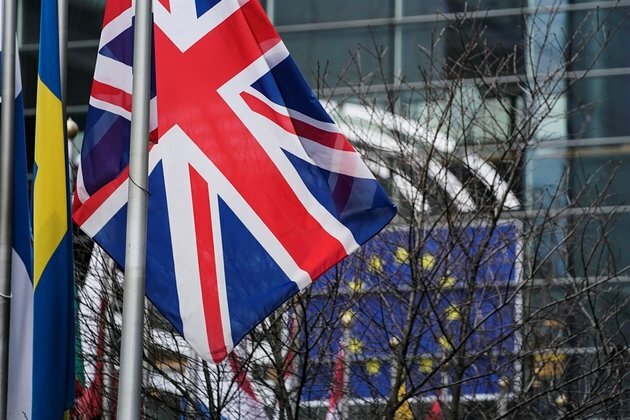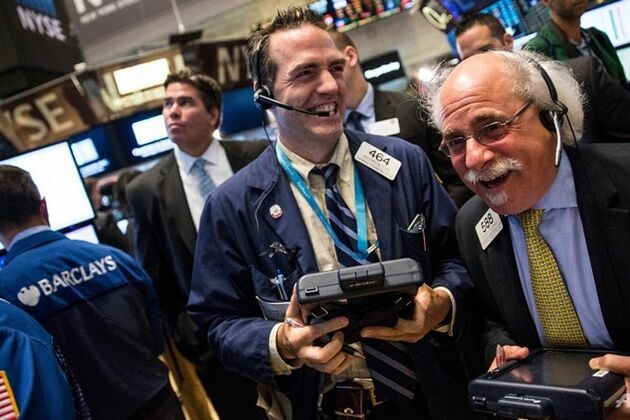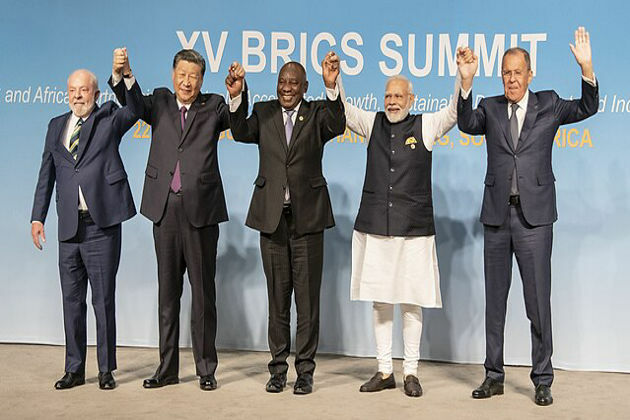What will change the day after Brexit
News24
27 Jan 2020, 23:42 GMT+10

At midnight on Friday - 1 317 days after British voters decided to leave the European Union - Brexit will finally come about. What will change on February 1?
At first, not much. Daily business between the United Kingdom and the EU will continue as before during an 11-month transition period until the end of the year.
This will allow London and Brussels to negotiate new arrangements to guide future relations, but in the meantime there are some practical changes.
No turning back
In theory, the British government could rescind its decision to leave the European Union at any moment until midnight on Friday, as if nothing had happened.
But from then on there will be no turning back, the union would have lost one of its largest and richest states, the first ever to quit the project.
The EU will therefore lose 66 million inhabitants - leaving it with a population of around 446 million - along with 5.5% of its land mass.
If Britain ever does decide it wants back in, then this will be a matter for EU accession procedures as for any outside applicant.
The institutions
In Brussels, the lowering of the Union Jack outside the European Parliament will symbolise a concrete change: Britain is out of the union and a "third country".
It will have no MEPs. 73 Brits elected in May will leave. 46 of the seats will be kept for future EU members and 27 will be distributed among under-represented countries.
Britain will no longer have a right to nominate a top official to the European Commission, although London failed to do so last year and its seat is already vacant.
Prime Minister Boris Johnson will no longer be invited to summits of the European Council of leaders, and ministers will no longer attend EU council meetings.
As non-EU citizens, Brits will not be eligible for senior bureaucratic posts in Brussels, but many have already secured dual nationality and residence rights.
Britain will, however, continue to pay into the EU budget as the second largest net contributor after Germany until the end of the transition.
Citizens rights
According to the United Nations, around 1.2 million British citizens live in other EU countries, mainly in Spain, Ireland, France, Germany and Italy.
And according to the UK stats office, another 2.9 million citizens of other EU countries live in Britain, around 4.6% of the population.
Under the withdrawal agreement signed by both sides, both sets of expatriates will initially retain the rights they had before Brexit to work and reside in their host country.
But Britons in Europe and EU citizens in the UK may have to register with the authorities and individual member states will set up procedures of their own.
Free movement will apply until the end of the transition. Afterwards, the withdrawal treaty says EU nationals will be able to stay in the UK if they continue to work.
The UK government has said it intends to end "freedom of movement" for future EU arrivals, and precise details of reciprocal rights will be negotiated after Brexit.
The negotiations
Britain has, of course, already spent years negotiating with European Commission official Michel Barnier's Brexit task force on the terms of its departure.
But these negotiations will change after Friday, when the "Article 50" procedure in the European Treaty expires and the UK becomes a third country.
The UK will nevertheless remain subject to EU law and the European Court of Justice until the end of the transition, and in any judgements in cases pending from before the final departure.
Barnier is in talks with EU member states to draw up a negotiating mandate for a trade agreement to govern cross-Channel commercial ties after the transition.
This will then be hammered out with UK officials in the same way as Europe's free trade agreements with other third countries, such as Canada or Singapore.
Unlike the withdrawal deal between the UK and Commission, ratified by EU members, the trade deal must be passed by more than 30 national and regional parliaments.
 Share
Share
 Tweet
Tweet
 Share
Share
 Flip
Flip
 Email
Email
Watch latest videos
Subscribe and Follow
Get a daily dose of London Mercury news through our daily email, its complimentary and keeps you fully up to date with world and business news as well.
News RELEASES
Publish news of your business, community or sports group, personnel appointments, major event and more by submitting a news release to London Mercury.
More InformationUK Editorials
SectionShifting payment landscape- what a digital euro will bring
Shifting payment landscape- what a digital euro will bring
NAB Pleased With FCCs Direction On Regulatory Fees
NAB Pleased With FCCs Direction On Regulatory Fees
Get After It Media Selects A Digital Strategy Leader
Get After It Media Selects A Digital Strategy Leader
Iowas News Leader and Hearst Celebrate 70 Years For KCCI
Iowas News Leader and Hearst Celebrate 70 Years For KCCI
Business
SectionGold ETF inflows hit 5-year high as tariffs drive safe-haven bets
LONDON, U.K.: Physically backed gold exchange-traded funds recorded their most significant semi-annual inflow since the first half...
PwC: Copper shortages may disrupt 32 percent of chip output by 2035
AMSTERDAM, Netherlands: Some 32 percent of global semiconductor production could face climate change-related copper supply disruptions...
U.S. stocks recover after Trump-tariffs-induced slump
NEW YORK, New York - U.S. stocks rebounded Tuesday with all the major indices gaining ground. Markets in the UK, Europe and Canada...
Stocks slide as Trump unveils 25% tariffs on Japan, S. Korea
NEW YORK CITY, New York: Financial markets kicked off the week on a cautious note as President Donald Trump rolled out a fresh round...
BRICS issues rebuke on trade and Iran, avoids direct US criticism
RIO DE JANEIRO, Brazil: At a two-day summit over the weekend, the BRICS bloc of emerging economies issued a joint declaration condemning...
BP appoints ex-Shell finance chief Simon Henry to board
LONDON, U.K.: This week, BP appointed Simon Henry, former Shell finance chief, to its board as a non-executive director effective September...













